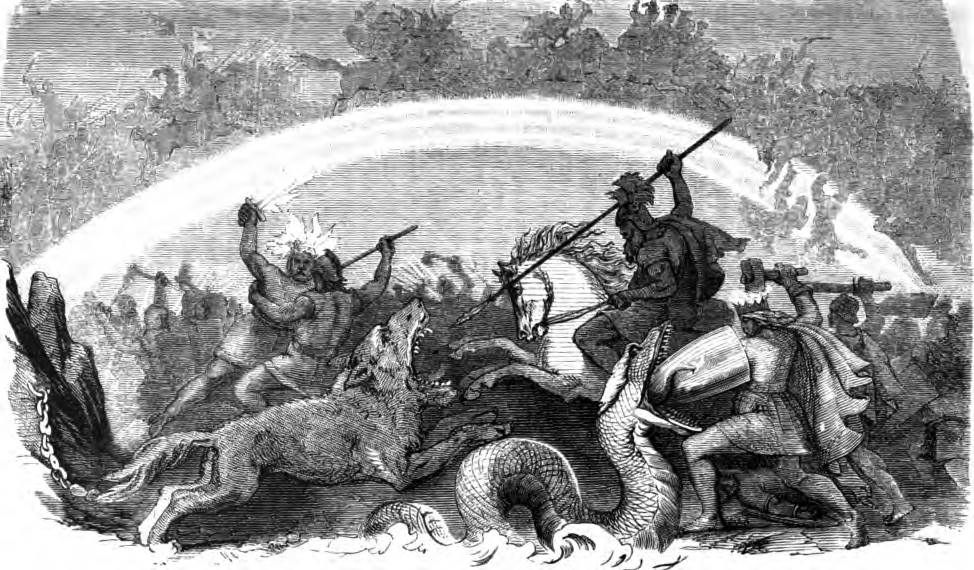The three single stems Alexander brings hospitalized Mina are obvious. It’s this episode’s eponymous fourth rose that blooms when Dracula says, “If you’re going to behave like a monster, then I’m going to make you one”, as the story finally has Lucy get turned, but in an act of hatred over the original one of desire. Yet, if you’re going to shoot a bloodletting & bloodgiving scene in a picturesque milk bath chamber you’ve already spent tons making & lighting, use the contrast of liquids, and the blooming infectious cloud of blood permeating the milk in an overhead shot. Instead they chose neck gore over subtle cinematic poetry.
Also this episode continues the trumping up of Lady Jayne’s concerns about an increasing vampire incursion in London. If there’s an epidemic of ghastly proportions infesting the whole metropolis, let’s see the rolling of victims, a pub takeover, dead bobbies as the corpse of authority, or dirty street urchins strewn about like empty bags that were neither cared for by Victorian society alive nor dead ... but they certainly would when they rise undead to feed on them.
Instead we do get one scene of Dracula leading his “relatives in from the continent” to take out some of the lesser known Order of the Dragon, but despite their awesome damask waistcoats, they’re just not-so-elegant hissing monsters sporting unfortunate bulgy mouthed dental prosthesis.
Also this episode continues the trumping up of Lady Jayne’s concerns about an increasing vampire incursion in London. If there’s an epidemic of ghastly proportions infesting the whole metropolis, let’s see the rolling of victims, a pub takeover, dead bobbies as the corpse of authority, or dirty street urchins strewn about like empty bags that were neither cared for by Victorian society alive nor dead ... but they certainly would when they rise undead to feed on them.
Instead we do get one scene of Dracula leading his “relatives in from the continent” to take out some of the lesser known Order of the Dragon, but despite their awesome damask waistcoats, they’re just not-so-elegant hissing monsters sporting unfortunate bulgy mouthed dental prosthesis.
| [No, why bother hiring an accomplished professional fangsmith like Dnash, when one can cut corners with huge plastic caps? It’s only a really expensive & risky primetime major network show with tenuous ratings.] |
Plotwise, things only set themselves up for what may just be an anticlimactic end of season: Harker ensconces himself with the Order of the Dragon, continuing to prove he’s the biggest patsycake ever. And in another echo of past things, Mina throws Lucy out of a whole hospital upon Lucy’s passive confession of jerkface Harker’s tryst.
More interestingly, Mina’s modern directness gives Alexander the opening he needs, her admitting to inner knowledge she’s metaphysically connected to lost Ilona, but in a fit of vampire guilt, Dracuxander doesn’t take the opening by finally confessing his love. It’s a great moment hampered by unnecessary restraint, especially since Davenport’s threat’s been removed from the board. Also mentioned by Lady Jayne, the “Sanguine Sanctorum” has been loaned to her team of hunters from the Vatican. Whatever this item is, we’re dying to find out.
And most vengefully rogue, it seems Van Helsing may have injected Browning’s kids with his apothecary jars of Dracula’s blood before deciding to ransom them for £50K (oh, about £21M today!). If the implication of the syringes is correct, the series’ creepiness factor may multiply “‘Salem’s Lot”-style with Browing either getting eaten by his own offspring, or being put in the position of having to drive steaks through their tiny hearts! Well done, Van Helsing!
With Harker’s granting the Order the blueprints to Grayson’s transmitter, it seems hopeless that a big science ending’s going to prevail. Browning’s demands for a catastrophe may happen on both sides, and one has to suppose that a fat cliffhanger full of debris and smoke’s all we’re going to get … unless Dracula placed faux plans for Harker to steal, but that’s probably overthinking it.
While a mostly happy bookstore fixture for over two decades, Guillermo Maytorena IV is currently willing to entertain your serious proposals for employment as a literary/cinema critic, goth journalist, castellan, airship pilot/crewperson, investigative mythologist, or assisting in a craft brewery. Should you be connected to any of the above or equally interesting endeavours, do contact him via LinkedIn or G+.



